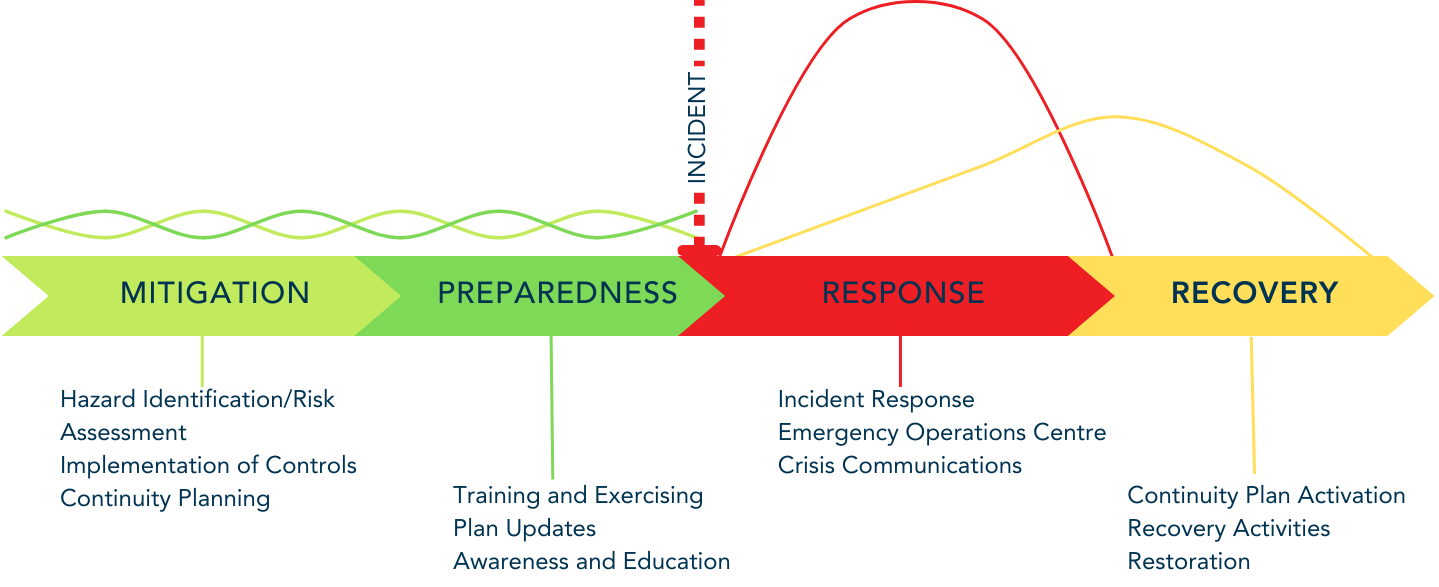What is Emergency Management?
Emergency Management enables an organization to prepare for, respond to, and recover from emergencies, from isolated events to complex crises. At MRU, emergency management involves identifying potential threats, creating response plans, training staff, and coordinating resources to protect the University community.
Looking for emergency preparedness information and resources? Visit mru.ca/emergency.
The Emergency Management Cycle
Emergency Management activities comprise the following phases:
- Mitigation/Prevention: leveraging risk management processes to identify, assess and mitigate risks faced by the University. These risks inform the prioritization of all other activities.
- Preparedness: establishing a state of readiness to effectively respond to and recover from emergencies and disruptions, achieved and maintained through increased awareness, education, and training.
- Response: coordinating efforts to address an incident, emergency, or disruption to minimize impact on the campus community. The Incident Management Team is responsible for initial command and control of an incident or emergency, with the Emergency Operations Centre providing additional institutional support when required.
- Recovery: restoring University operations to an acceptable level following a disruption, supported by both institutional and department-level continuity and contingency planning.
Emergency Management at MRU is governed by the Emergency and Continuity Management policy and the Emergency Management procedure.

Interested in learning more? Contact Kim Cousineau, Business Continuity and Emergency Management Advisor at kcousineau@mtroyal.ca.


